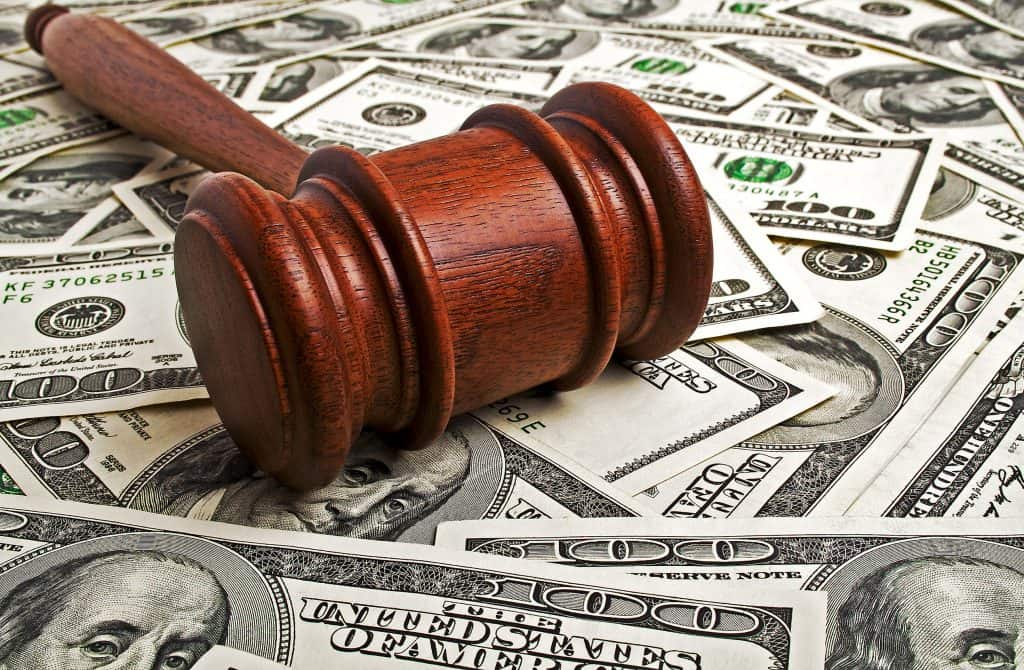
Close readers of cannabis company financial statements have realized that many marijuana enterprises are financing themselves through nonpayment of federal taxes.
Caught in the perfect storm of collapsing margins, oppressive taxes and vanishing access to debt and equity capital, they are buying time by not making estimated tax payments in hopes of a brighter future.
Some observers try to put a positive spin on nonpayment as “cheap financing,” claiming that the interest charged on federal unpaid taxes is lower than interest that would be charged on other kinds of debt.
This is folly, of course: Interest rates on underpayments when added to penalties that might apply result in costly financing, especially for large corporations that could be subject to higher underpayment interest rates (and underpayment interest isn’t deductible).
‘Grim reality’

More to the point, it’s a bargain with the devil because, when the IRS begins collection procedures, the marijuana taxpayer will have no choice but to pay the amount owed sooner or later.
While it might be true that recent IRS settlements with cannabis businesses have included compromises of the total amount due on the basis that the company would go under if it had to pay the full amount, underpayers are betting the farm on a risky proposition.
And underpayment for a single year of liability doesn’t solve the problem – more tax is due the next year, the year after that and so on.
The grim reality is that cannabis companies that are not making estimated tax payments are insolvent or on their way there in short order.
Ordinarily, businesses in that position would negotiate with creditors and, if needed, try to reorganize in a federal bankruptcy proceeding.
But marijuana businesses can’t go bankrupt – federal bankruptcy courts will not hear petitions from federally illegal enterprises.
Instead of bankruptcy, cannabis companies that can’t pay their bills can be put into receivership under state law.
Two lessons
Having participated in several cannabis receivership proceedings, two lessons are apparent:
1. Most receivers need better advice in dealing with the licensing and other regulatory issues faced by cannabis enterprises.
On at least one occasion, a California receiver sold a marijuana store separately from its license to operate, thus ruining the value of the business and eliminating any chance of winding up the receivership.
Other common mistakes include believing that a receiver, who most likely has never operated a marijuana company, can properly operate a cannabis operation without the need for additional capital.
2. Receivers are not being correctly guided with respect to the complex tax and accounting issues that are raised by operating a cannabis business.
One of the first tasks of a receiver should be to ascertain the tax liability of the cannabis company.
The tax due is often unclear because of incorrectly prepared returns for both current and open (still subject to audit) years as well as overzealous and mistaken enforcement of Section 280E by the IRS.
When combined with the unavailability of clear tax rules (there are special helpful tax code provisions that can’t be used outside of federal bankruptcy), state-level cannabis receiverships are often unpredictable and unfair.
Pay up, negotiate
As difficult as it is, struggling cannabis companies should both pay their taxes and avoid receivership by negotiating with creditors.
For cannabis companies that have not yet taken the foolish nonpayment approach, there are alternatives, but they are complicated and require excellent books and records as well as sophisticated and aggressive advisers.
The real answer, of course, is to reform the tax code by getting rid of Section 280E; even people engaged in every other form of illegal activity get ordinary tax deductions.
Why should criminals engaged in the illicit marijuana market, for example, get tax breaks that people operating state-legal cannabis businesses don’t?
Unfortunately, such tax reform is unlikely to occur any time soon, and until then, marijuana operators need to avoid wishful thinking and make intelligent decisions.
James Mann, a cannabis tax lawyer at New York-headquartered Lucosky Brookman, argued the Harborside case in the 9th Circuit. He can be reached at jmann@lucbro.com.
John Yaeger, a principal of the San Diego-based public accounting firm Pham Yaeger, has a number of prominent cannabis enterprises as clients. He can be reached at john@pygllp.com.
To be considered for publication as a guest columnist, please submit your request here.





